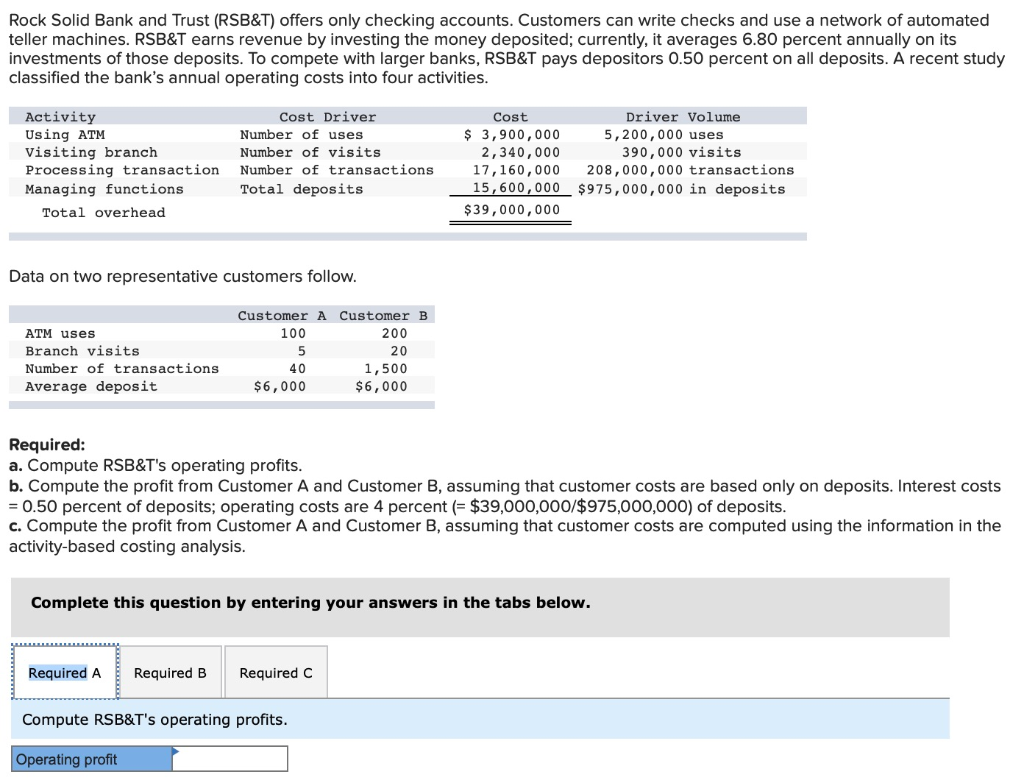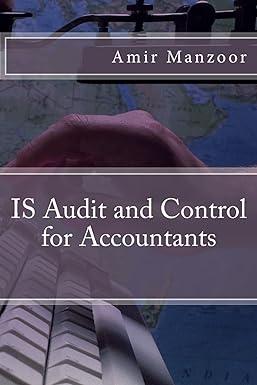


Rock Solid Bank and Trust (RSB&T) offers only checking accounts. Customers can write checks and use a network of automated teller machines. RSB&T earns revenue by investing the money deposited; currently, it averages 6.80 percent annually on its investments of those deposits. To compete with larger banks, RSB&T pays depositors 0.50 percent on all deposits. A recent study classified the bank's annual operating costs into four activities. Activity Cost Driver Using ATM Number of uses Visiting branch Number of visits Processing transaction Number of transactions Managing functions Total deposits Total overhead Cost $ 3,900,000 2,340,000 17,160,000 15,600,000 $39,000,000 Driver Volume 5,200,000 uses 390,000 visits 208,000,000 transactions $975,000,000 in deposits Data on two representative customers follow. Customer A Customer B 100 200 20 40 1,500 $6,000 $6,000 ATM uses Branch visits Number of transactions Average deposit 5 Required: a. Compute RSB&T's operating profits. b. Compute the profit from Customer A and Customer B, assuming that customer costs are based only on deposits. Interest costs = 0.50 percent of deposits; operating costs are 4 percent = $39,000,000/$975,000,000) of deposits. c. Compute the profit from Customer A and Customer B, assuming that customer costs are computed using the information in the activity-based costing analysis. Complete this question by entering your answers in the tabs below. Required A Required B Required C Compute RSB&T's operating profits. Operating profit Required A Required B Required C Compute the profit from Customer A and Customer B, assuming that customer costs are based only on deposits. Interest costs = {{0.5:#,##0.00}} percent of deposits; operating costs are 4 percent (= $39,000,000/$975,000,000) of deposits. (Do not round intermediate calculations. Round your answers to 2 decimal places.) Profit Per Customer Customer A Customer B Required A Required B Required C Compute the profit from Customer A and Customer B, assuming that customer costs are computed using the information in the activity-based costing analysis. (Do not round intermediate calculations. Round your answers to 2 decimal places. Loss amounts should be indicated by a minus sign.) Customer A Customer B Sales revenue Interest on deposit Total operating cost Customer profit/loss









